
2023 Annual Meeting Presentations
Click for a PDF version of the Program
Where have we been? Where are we going?
Thanks to our sponsors:
Wednesday, May 10, 2023
9:00 AM - 12:00 PM: Pre-Conference Workshop: Sunshine State Digital Network's Reparative Description Workshop by Keila Zayas-Ruiz (Florida State University)12:00 PM: Registration Table Opens, Lunch On Your Own
1:00 PM: Welcome and Introductions: Sarah Coates (SFA President), Katie McCormick & Beth Golding (Planning Committee Chairs), Cord Byrd (Florida Secretary of State)
1:30 PM: "Succession Planning in an Era of Declining Enrollment and Budget Cuts" by Deborah S. Davis (Valdosta State University) and Dean DeBolt (University of West Florida) (Presentation Slides)
The entire US system of Higher Education is facing a demographic cliff. This year there were two million fewer potential freshmen available for schools to recruit. While larger, more prestigious schools may simply tweak enrollment standards to maintain their headcount, regional comprehensives and other smaller universities simply cannot compete for traditional students on the same level or maintain (2 of 17) Society of Florida Archivists Annual Meeting May 10-12, 2023 existing budgets. Schools are scrambling to re-define themselves to a growing online adult learner population, figure out what they can do without, and rebalance over-staffed departments based on falling majors. It’s tough all over. Retirements are looked at as a relatively painless way of saving money. Not filling a retiree’s job means new faculty don’t have to be sacrificed. After 25 years of building an archives from a closet, with a part time reference librarian and a student worker to a solid, midsize archives with three MLIS trained and certified archivists, I am facing retirement at a time positions are not being replaced, and leadership within the archives is threatened. I will discuss strategies for a sustainable archives for this future. Tactics and arguments for the placement of Archives firmly within the mission of the university will be discussed. I will point out ways to make your archives as valuable as possible to the institution and region. Re-organization, advocacy, outreach and partnerships, changing workflows, the place of students, staff, volunteers, and interns will all be discussed as aspects of sustainability.
2:15 - 2:30 PM: “Finishing the Hat: Strategies for Building an Intern Program to Address Legacy Backlogs in Performing Arts Collections” by Arianne Johnson Quinn (Florida State University) (Presentation Slides)
One of the well-known challenges for Special Collections staff is that of the backlog. Many of these materials were left to our care by previous administrations and staff, and are often in need of both practical and physical care, as well as intellectual control. A lack of fulltime staffing to address these needs creates additional challenges, particularly as other constraints arise, including patron need, institutional demand, and responsibilities as library staff. In my role working with manuscripts in the College of Music at Florida State University I have been tasked with the care and keeping of several legacy collections that reflect our institutional and cultural history. A significant problem has been to create an efficient plan to address areas of institutional need for the College of Music Collections. In order to address these challenges, I worked with our campus partner InternFSU, which allowed me to hire, train, and supervise interns to help with this backlog. Over the course of the past 18 months, I have established a series of workflows and training protocols while still finding ways to address ongoing patron needs. These interns have worked closely with me as we have developed new ways to manage projects and work towards personal growth. Intern projects have included basic preservation according to current standards, arrangement and description, (3 of 17) Society of Florida Archivists Annual Meeting May 10-12, 2023 metadata creation, digitization, instruction, and curation of archival exhibits. For these interns, not only does this help provide practical experience for them, but it has allowed me to develop methods for interns who work with Special Collections. Although perhaps projects are never truly ‘finished,’ they can serve as learning and growth opportunities for both interns and staff. This presentation will explore the joys and challenges of working with Special Collections interns, speculating as to both its practicality and longevity, while showcasing project highlights.
2:30 - 2:45 PM: BREAK and Afternoon Refreshments
2:45 - 3:30 PM: “Evolving Practice and the Collection Record: Acquiring and Processing the Feminist Women’s Health Center and Marion Banzhaf Collections” by Robert Rubero, Rory Grennan, and Michaela Westmoreland (Florida State University) (Presentation Slides)
For the 2023 Society of Florida Archivists Annual Meeting, we will be discussing the process of acquiring the Feminist Women’s Health Center Records and the Marion Banzhaf Papers, from appraisal to the current state of the collections, which are still in process but fully accessible to the public. The FWHC was incorporated as a nonprofit organization in Florida in 1974. It opened the Women's Choice Clinic in Tallahassee on June 29, 1974. The Marion Banzhaf Papers document a 30 year span of Marion Banzhaf’s career as an activist in the women’s health movement and her work with awareness raising and the prevention of and care for HIV/AIDS among women. The FWHC Records are a legacy collection, with their The purpose of the session is to inform the archival community on the progress of these collections, our process for acquisition, and the processing & dissemination of this material against the backdrop of FSU Special Collections’ new Manuscripts Program as we continue to evolve our practice and do things differently. Our session will begin with an overview of the collections, our contact with various stakeholders, the processing of the materials and finally future goals.
3:30 - 4:15 PM: “A River Runs Through It: Disaster Recovery at FSU Libraries Special Collections and Archives” by Hannah Davis, Haley McGuyre, Kristin Hagaman, and Rory Grennan (Florida State University) (Presentation Slides)
Since the Great Holiday Flood of 2022, FSU Special Collections & Archives’ approaches to public services, instruction, and collections management have been forever altered by the sudden shift in priorities prompted by a massive flooding event. On the night of December 25, 2022, FSU Libraries suffered a catastrophic flood on its two lower floors. In those (4 of 17) Society of Florida Archivists Annual Meeting May 10-12, 2023 critical hours when water continued to rain down on collections, first responders worked to salvage materials and mitigate damage. Subsequent plans for building renovations have necessitated vacating our subbasement storage area, leading to the development of procedures for delayed access and implementation of new archival processing guidelines. The restrictions, hardships, and fast-paced changes of the past six months have led to growth and, in many cases, positive change. In this panel presentation, members of FSU Special Collections & Archives will discuss the immediate recovery and response effort; continued triage and salvage of impacted materials; the coordination to move the base of public services and instruction to a different building on campus; and the future of SCA’s collections and services as we move materials offsite. This presentation and discussion will be relevant for attendees preparing for water events or a remote storage service model.
4:15 - 4:45 PM: Travel to FSU
4:45 - 5:45 PM: Tour: FSU Flood Recovery & Operations Tour
5:45 - 7:30 PM: Reception: Heritage Museum in Dodd Hall
7:30 PM: Travel to Conference Hotel
Thursday, May 11, 2023
8:15 AM: Registration Table Opens
8:15 - 9:00 AM: Board of Directors Meeting
9:00 - 9:15 AM: Announcements and Updates
9:15 - 10:15 AM: SFA Business Meeting + Awards
10:15 - 10:30 AM: BREAK and Morning Refreshments
10:30 - 11:15 AM: “Digitizing Riley House: Collaborating to bring a Museum's Archives Online” by Krystal Thomas (Florida State University), Torrio Osborne (Tallahassee Community College), Neissa Philamon, Caroline Haight and Hope Evans (John G. Riley Center and Museum) (Presentation Slides)
This session will share the work being done in collaboration between the John G. Riley Center and Museum of African American History and Culture, the Riley Archives at Tallahassee Community College, and Florida State University Libraries to digitize the Riley Archives and create an online digital library for the materials. These Tallahassee-based organizations have not worked together on a large-scale project like this before. To be successful, the project team needed to create new workflows and project standards to meet the needs of the many different stakeholders and to be sure the materials being prioritized for the project fit the needs of the expected end users. We'll report back on the project design, the internship program created for the grant, the current status of work and what the final deliverables will be for the grant. Interns on the project will also discuss their work and how they hope their experiences will enhance their future contributions to their fields of study.
11:15 AM - 12:15 PM: Keynote: "Where Are We Going? Reflecting on the Future of Archives in Florida” by Joy Banks (CoSA Executive Director)
Gathering for the 40th time in this archival community of practice, we take this moment to reflect on what may come next on our journey. As stewards of our collective memory, archivists are tasked with an increasingly complex mandate (6 of 17) Society of Florida Archivists Annual Meeting May 10-12, 2023 to preserve the past and plan for the preservation of an unknown future. In a landscape of digital migration, reduced resources, aging systems, and other external forces, we often lack the capacity to think beyond the immediate. Let’s take some space to gauge our current path, consider the challenges, and dream of what could be.
Joy M. Banks is the Executive Director of the Council of State Archivists (CoSA), a non-profit membership organization of the state and territorial government archives in the fifty states, five territories, and District of Columbia. She brings to the organization nearly 20 years of experience in the non-profit and academic library, archive, museum, and cultural heritage field. On her winding career path, the common themes of her work have been non-profit leadership, project and grant management, assessment and reporting, cataloging and metadata creation, and digitization, all with a central focus of connecting collections to people. Stepping into the state and territorial government archives sector allows for new opportunities to apply her passions. She is particularly interested in promoting equitable and inclusive access to diversely representative collections and advocacy for the collaborative support and sustainability of those institutions and individuals engaged in this critical work. Banks holds an MS in Library Science from Clarion University of Pennsylvania and a BA in English Literature from Florida Southern College.
12:15 - 1:15 PM: Speed Networking/Musical Chairs Luncheon
1:15 - 1:30 PM: BREAK and Afternoon Refreshments
1:30 - 2:15 PM: Poster Session: The Big Picture(s)
- "Archives Across the Curriculum: Reflecting on Cross-Disciplinary Digital Editing Experiences at UNF" by Clayton McCarl, Janaya Ferrer, and Susan Swiatosz (University of North Florida) (Poster PDF)
This presentation considers how opportunities for student engagement with archives can cut across disciplinary areas and majors, providing formative experiences to diverse groups of students and contributing to the fulfillment of common learning objectives at the undergraduate level related to experiential learning and the acquisition of critical skills. The three presenters include the head of Special Collections and University Archives at the University of North Florida (UNF), a member of the academic faculty, and an undergraduate computer science major. They reflect on the experiences of students and faculty who have collaborated on several digital editing projects at UNF, and most specifically the ongoing endeavor Editing the Eartha M.M. White Collection (https://unfdhi.org/earthawhite). Each presenter will reflect from their perspective on the ways that connecting students with archives through digital editing projects can contribute to enhancing education at the undergraduate level by helping students from all disciplinary areas to improve skills related to critical, creative, and integrative thinking; information literacy; effective writing; public speaking; and technology. They will also consider how these hands-on experiences can increase students' confidence through becoming active agents in meaningful processes of cultural heritage preservation and dissemination. The presenters seek to gather feedback from those at other institutions and ideas for a possible research article on this topic.
- "Digital Collaborations: Bringing Archives and Museum Collections to Online Audiences" by Elizabeth Maycumber (Stetson University) and Laura Douglass Marion (Governor's House Museum) (Poster PDF)
This poster will explore collaborative practices and use of digital tools to promote archives, museum, and library collections to wider audiences. Beginning in 2020, St. Johns County Public Library System collaborated with multiple cultural institutions, including Governor’s House Library, to create filmed behind-the-scenes tours of myriad collections in St. Augustine and Jacksonville. These videos were shown on the library’s website and social media pages, and provided both educational opportunities and entertainment relief during the height of the Covid pandemic. Collaborative ties were further cemented during the Resilience: Black Heritage in St. Augustine project, in which fourteen cultural institutions in (8 of 17) Society of Florida Archivists Annual Meeting May 10-12, 2023 northeast Florida worked together in 2021 to highlight St. Augustine’s rich African American history, with SJCPLS filming highlights of several participating institution’s projects. This poster will feature highlights from the behind-the-scenes tours and Resilience projects, as well as an exploration of collaborative practice between community cultural institutions.
- "Digitization and Outreach in Jacksonville University's Swisher Library Special Collections" by John Harwick (Jacksonville University)
This poster will detail the various digitization initiatives held in Swisher Library’s Special collections under my employment for the previous 3 years and cover various projects the department has been involved in. These include our highly successful student worker program, creating new collaborations through varied departments across the university from digital projects, to digitizing the university’s records and even working to market our collection to a wider audience by hosting researchers and creating exhibits to display the diverse array of archival materials we have to showcase to the JU community and beyond here in Northeast FL. The poster will showcase information and photographs detailing the digitization process from selecting material to entering it into our database management system ContentDM with other details on exhibits and programs that have happened within special collections. Those that will be interested will be staff and employees from libraries, museums and other institutions hoping to gain insight into how to engage their community through digital and innovative initiatives in libraries and other collections based in the humanities. I will showcase and discuss some of the recent success the library has had in making the most out of our spaces and engaging the community as well as the digital processes that we use to digitize and share the collections.
- "Double Vision: A Collection of Archival Themes, Theories, and Praxis from the Past for the Future by Cara DeSimone (Southeast Archeology Center) (Poster PDF)
This hybrid, living poster exhibit will visually explore themes, concerns, and efforts from our colleagues of the past and present. Coinciding with and inspired by SFA's 40th anniversary, a full text survey of 1983 archives-based literature will be visually represented in poster format at the start of the conference. For comparison, a survey of 2022 archives-based literature will represent our current point in time. (9 of 17) Society of Florida Archivists Annual Meeting May 10-12, 2023 Throughout the conference, participants will be invited to anonymously share their hopes, goals, concerns, or predictions for the next 40 years - looking forward - via digital or analog options. Attendees will be invited to sign the poster, yearbook style, to serve as the foundation for an “archival time capsule” to be reviewed at the annual meeting of 2063.
2:15 - 2:30 PM: “Language Justice as Part of Conscious Metadata Practices” by Annia Gonzalez and Rhia Rae (Florida International University) (Presentation Slides)
The presenters will discuss the motivations, progress, and challenges encountered in developing and managing an initiative to address language justice in archival collections. Many archival collections contain material in multiple languages, which limits access to these materials and excludes the individuals and communities who create, use, and are represented in them. To address this problem, the archivists have begun to explore providing multilingual description in Finding Aids. Specific examples of new descriptive practices and remediation steps taken in the past two years will presented, in the hopes that these experiences will provide a model with recommendations for an ethical archival practice that leads to broader access of important manuscript collections.
2:30 - 2:45 PM: “Voices from Florida: Public programing as a tool for archival advocacy” by Katharine Labuda (Miami-Dade Public Library) (Presentation Slides)
The Miami-Dade Public Library System’s Special Collections & Archives division holds rare and irreplaceable materials that benefit the public and scholarly community. Among its resources, the Helen Muir Florida Collection contains a broad range of information about the Sunshine State, with particular emphasis on South Florida. It comprises works by Florida authors and Floridiana, including rare books, maps, and regional newspapers. However, due to the particular care and storage these archival materials require, many patrons may not be aware of their existence and how feasible it is to access them. For this reason, we developed Voices from Florida, a monthly program about Florida’s rich cultural and historical legacy. This lecture-style program uses archival material, when available, to provide patrons with an engaging and well-researched session highlighting the numerous resources available to library patrons, such as databases, microfilm records, digital collections, and more. This program has helped to foster relationships with (10 of 17) Society of Florida Archivists Annual Meeting May 10-12, 2023 writers, historians, journalists, and filmmakers by giving them a forum to voice their enthusiasm about topics of their choice relating to Florida. It allows us to provide enriching programs for the public led by experts who know these topics best while supporting the work of researchers who rely on archival materials to enhance their content. In turn, this can inspire patrons who may have yet to become familiar with archives to feel empowered to utilize these resources available to them with their library cards. This session will detail the program’s two years of growth: how it went from staff-led programs to hosting noted scholars, being awarded a grant from the Florida Humanities, and winning recognition from NACO (National Association of Counties).
2:45 - 3:00 PM: BREAK and Afternoon Refreshments
3:00 - 4:00 PM: “Discussion of Access and Usage of LGBTQ Archival Material” by Kestrel Ward and Evangeline Giaconia (University of Florida) (Presentation Slides)
This panel session will consist of a presentation and discussion about LGBTQ material usage and access in archives. We wish to generate discussion and ideas regarding the invisibility/disappearance of LGBTQ materials in large archives, resulting from both the historical suppression of those materials and contemporary censorship. A brief presentation will outline our initial research into the access and usage of LGBTQ archival materials at several institutions. Discussion points will include the political and social landscapes that keep archivists from promoting and utilizing materials, the self-censorship of archival professionals, and the general lack of LGBTQ visibility within archival databases. We invite participants to share their experiences working with LGBTQ archival materials, challenges involved, and strategies to overcome these obstacles to increase promotion and discovery.
4:00 - 4:30 PM: Travel to John G. Riley Center and Museum
4:30 - 5:00 PM: Tour: Smokey Hollow Commemorative Site #1
5:00 - 5:30 PM: Tour: Smokey Hollow Commemorative Site #2
5:30 - 7:00 PM: Reception: John G. Riley Center
7:00 PM: Travel to Conference HotelFRIDAY, MAY 12, 2023
8:30 AM: Registration Table Opens and Morning Refreshments
9:00 - 9:15 AM: Announcements and Updates
9:15 - 10:00 AM: “Leveraging automated captioning & transcription tools improve accessibility for audiovisual collections: on-going research and possible workflows” by Dave Rodriguez, Bryan Brown, and Ruben Aleman (Florida State University) (Presentation Slides)
Creating transcriptions and closed-captions for digital audiovisual collections has historically been an enormous challenge for cultural heritage institutions. Captions greatly enhance the accessibility and discoverability of these materials, but generating them and ensuring their accuracy, quality, and adherence to best practices is often a technical and/or financial obstacle for many organizations. This presentation will present on-going research related to evaluating the performance and strengths/weaknesses of different automated transcription tools and offer possibilities for integrating them into library workflows. It will also offer an overview of the basic principles related to audiovisual accessibility in addition to a technical-but-beginner-friendly introduction to captioning formats (namely, WebVTT). The goal of this session is for participants to gain a greater understanding of the complex challenges related to audiovisual accessibility, knowledge of the landscape of available tools, and, hopefully, inspire more awareness and initiative related to enhancing the accessibility of time-based media across the LAM sector.
10:00 - 10:15 AM: BREAK and Morning Refreshments
10:15 - 10:30 AM: “A Skeptic’s Guide to Using AI-Driven Content to Promote Access to Digital Archives on Social Media” by Rebecca Bakker (Florida International University) [Zoom]
As cultural institutions continue to digitize their collections and make them available online, social media platforms offer a promising method for promoting and providing access to these digital archives. By incorporating Artificial Intelligence (AI), it is possible to create engaging and accessible content that can reach a wider, measurable audience. However, (13 of 17) Society of Florida Archivists Annual Meeting May 10-12, 2023 concerns about bias, inaccurate information and ethical considerations abound and must be considered. In this presentation, we will explore the evolution of practices in incorporating AI into digital archive work at the Digital Collections Center at Florida International University Libraries to extend into social media content. We will examine the potential of social media platforms for promoting and providing access to partner collections in the digital repository. We will also address the ethical considerations of using AI in creating social media content and discuss the question of whether this is a worthwhile endeavor. Attendees will gain a deeper understanding of the potential of AI-generated social media content (using platforms such as ChatGPT) as a means of access to digital archives, as well as practical insights into the considerations that should be taken into account. By showcasing the successes and challenges of using AI in social media content creation and promotion, we hope to inspire discussion and critical thinking about the role of social media and AI in promoting access to digitized collection materials.
10:30 - 10:45 AM: “Using Data Tools to Expand the Archives' Reach” by Clarissa West-White, Ph.D. (Bethune-Cookman University) (Presentation Slides)
The Archives housed at Bethune-Cookman University has used a number of storytelling tools to visualize the remarkable accomplishments and lesser known story of Dr. Mary McLeod Bethune. Despite being placed in the United States Capitol Statuary Hall, few know of her vast achievements in areas other than founding a university, although that was no small feat. In addition to a Google Site, the University Archivist has incorporated free tools provided by Knight Lab of Northwestern University to showcase her writings and other realia and life. StoryMap was used to showcase relational locations and Timeline was used as an alternative to powerpoint and Google slides to highlight how Dr. Bethune juggled multiple appointments, held leadership positions in countless local and national organizations, continuously called upon friends to build capital for the college, all while steadily building an institution of higher education. Google Site was created to fulfill a grant-funded initiative to demonstrate how Dr. Bethune exudes Black Fantastic traits.
10:45 - 11:00 AM: “Tech Demo: How we Used ClickUp to build the SFA Annual Meeting” by Cara DeSimone (Southeast Archeology Center) (Presentation Slides)
Collaboration, though often rewarding, is never easy. When the team is able to operate asynchronously, barriers melt away and time constraints fade to the background. With a shared information platform, each person can chip away at (14 of 17) Society of Florida Archivists Annual Meeting May 10-12, 2023 tasks during their individual down time (or dedicated focus times, whichever the case may be – which again, is the beauty of operating at our own speeds!). To juggle the ever-changing and highly complex details involved in planning a conference, the planning subcommittee turned to project management tool ClickUp. The customizable, freemium mobile and web application provides multiple tools, views, and features to help herd your flock of kittens, wherever they are. Your friendly archives planning nerd will walk through some basic concepts before sharing a live screen test drive.
11:00 - 11:15 AM: Closing Remarks
11:15 AM - 12:00 PM: Lunch: Boxed Lunches Will Be Provided
12:00 - 12:30 PM: Travel to State Archives
12:30 - 1:15 PM: Tour: State Archives of Florida Group 1
1:15 -1:30 PM: BREAK
1:30 - 2:15 PM: Tour: State Archives of Florida Group 2

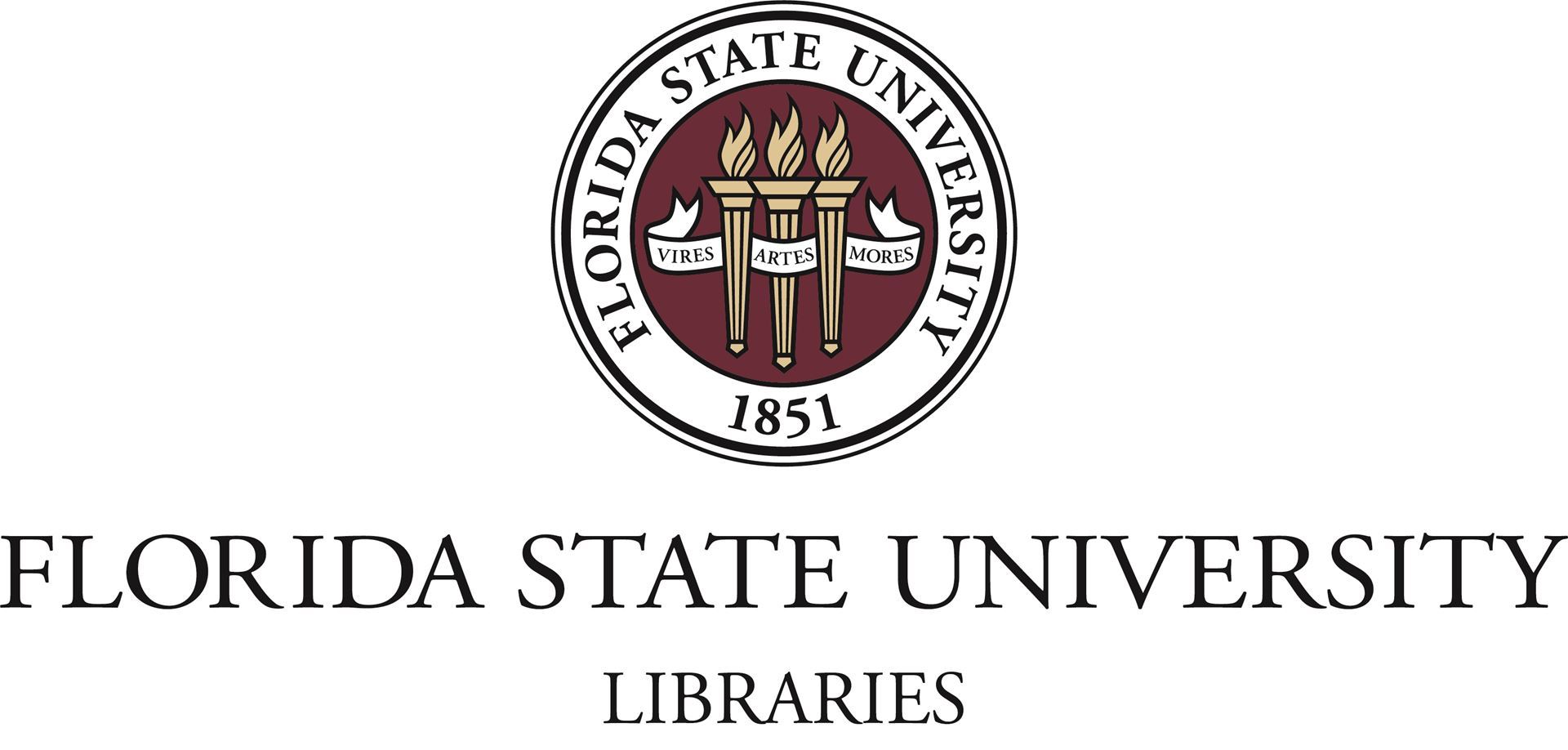

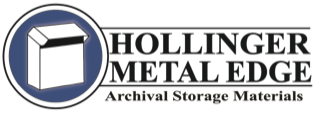

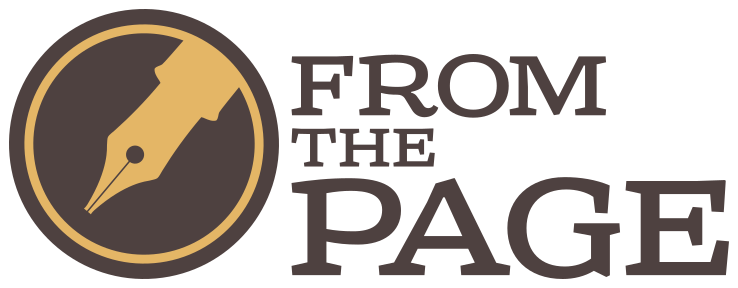
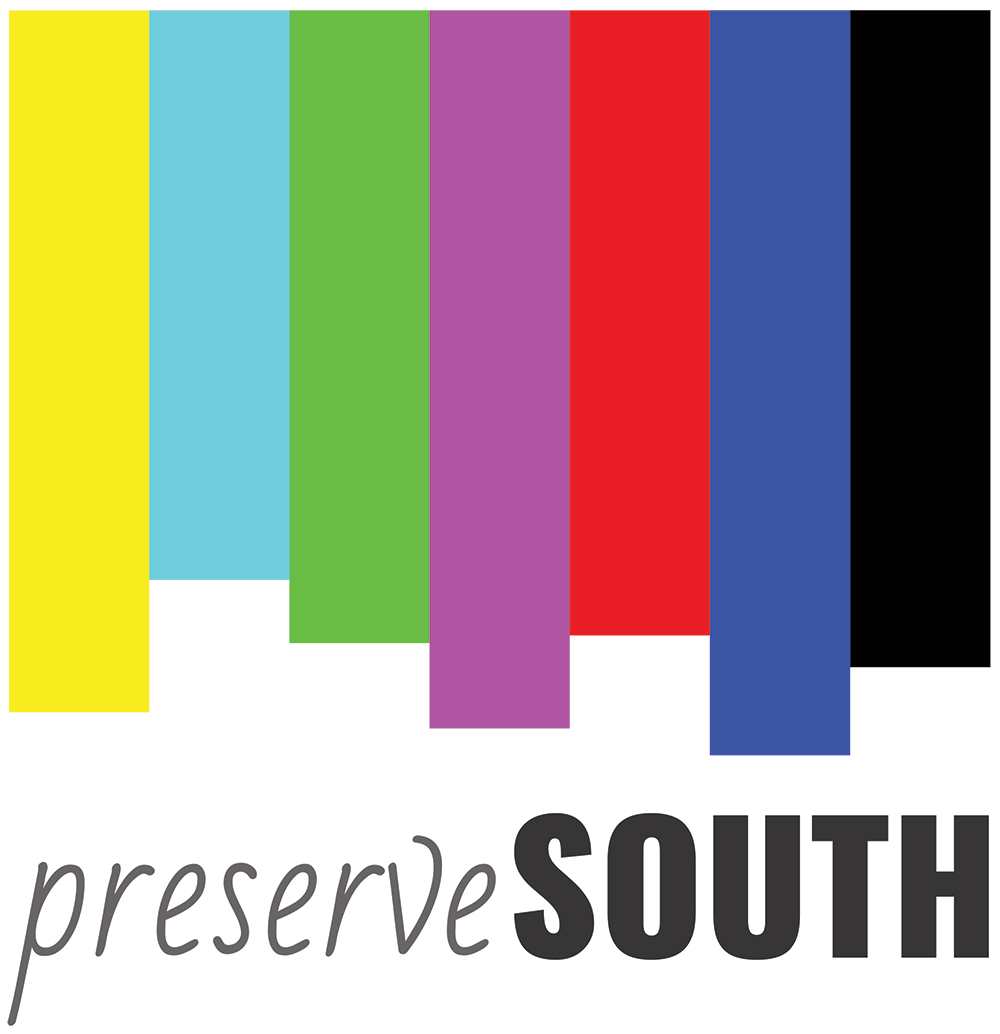
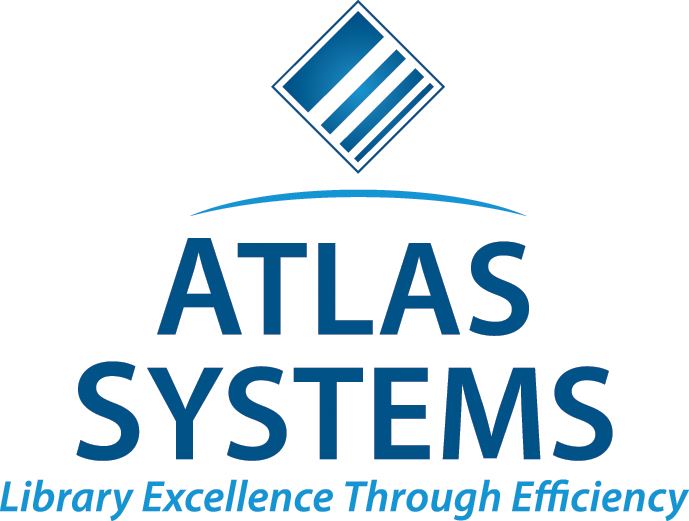
.png)



